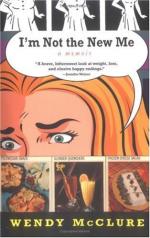Other magazines took their turn—the “Atlantic,” I remember—in due course; but I shared the general awe of this magazine at that time prevailing in New England, and, having, possibly, more than my share of personal pride, did not very early venture to intrude my little risk upon that fearful lottery.
Perhaps this reserve was more natural because “Harper’s” published as fast as I could write; which is not saying much, to be sure, for I have always been a slow worker. The first story of mine which appeared in the “Atlantic” was a fictitious narrative of certain psychical phenomena occurring in Connecticut, and known to me, at first hand, to be authentic. I have yet to learn that the story attracted any attention from anybody more disinterested than those few friends of the sort who, in such cases, are wont to inquire, in tones more freighted with wonder than admiration: “What! Has she got into the ’Atlantic’?”
The “Century” came in turn, when it came into being. To this delightful magazine I have always been, and always hope to be, a contributor.
[Illustration: THE HOUSE IN ANDOVER, MASSACHUSETTS, WHERE THE SCHOOL CALLED “THE NUNNERY” WAS HELD.
From a photograph taken in 1864 by Geo. H. Leek, Lawrence, Massachusetts.]
I read, with a kind of hopeless envy, histories and legends of people of our craft who “do not write for money.” It must be a pleasant experience to be able to cultivate so delicate a class of motives for the privilege of doing one’s best to express one’s thoughts to people who care for them. Personally, I have yet to breathe the ether of such a transcendent sphere. I am proud to say that I have always been a working-woman, and always had to be; though I ought to add that I am sure the proposal that my father’s allowance to his daughter should cease, did not come from the father.
When the first little story appeared in “Harper’s Magazine,” it occurred to me, with a throb of pleasure greater than I supposed then that life could hold, that I could take care of myself, and from that day to this I have done so.
One hesitates a little, even in autobiography, about saying precisely this. But when I remember the thousands of women who find it too easy to be dependent on too heavily-weighted and too generous men, one hesitates no longer to say anything that may help those other thousands of women who stand on their own feet, and their own pluck, to understand how good a thing it is to be there.
Of all the methods of making a living open to educated people to-day, the profession of literature is, probably, the poorest in point of monetary returns. A couple of authors, counted successful as the world and the word go, said once:




